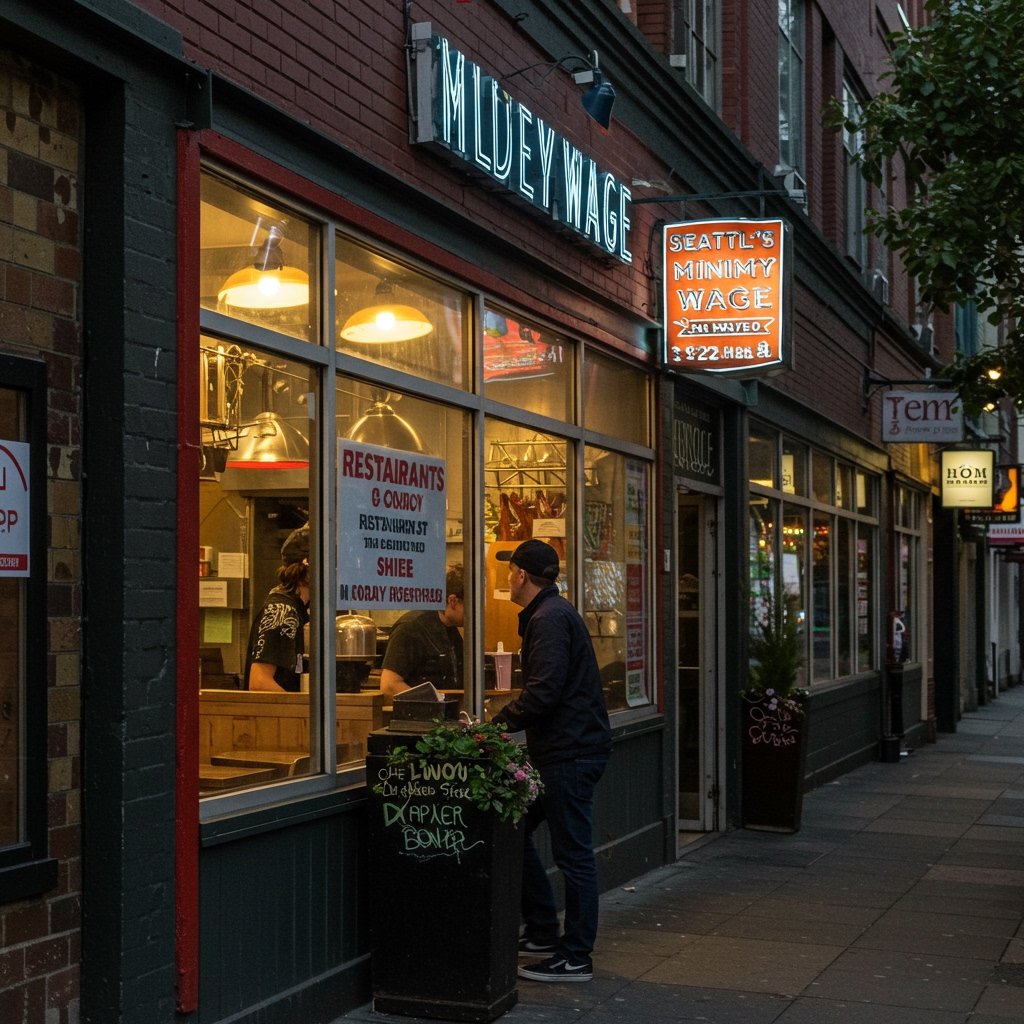Seattle City Council Considers Accelerated Minimum Wage Hike Amid Restaurant Industry Concerns
Seattle, WA – A pivotal debate is underway within the Seattle City Council regarding the future trajectory of the city’s minimum wage. At the heart of the discussion is Bill 2025-A, a proposed ordinance that seeks to significantly accelerate the timeline for the city’s minimum wage to reach $22 per hour for all employees, irrespective of the size of their employer. The bill proposes that this new wage floor take effect by January 1, 2026.
This legislative push has ignited a sharp division between worker advocacy groups, who argue for the necessity of a higher wage to combat Seattle’s soaring cost of living, and the local restaurant industry, which voices grave concerns about the potential economic viability of businesses under the accelerated schedule.
Restaurant Industry Sounds Alarm
The Seattle Restaurant Alliance, an organization representing the interests of over 500 local eateries, has emerged as a prominent voice opposing the rapid implementation schedule outlined in Bill 2025-A. On March 9th, representatives from the Alliance provided testimony to the City Council, presenting data and expressing deep apprehension about the bill’s potential impact on their operations.
The Alliance’s testimony highlighted a central data point: their analysis suggests that independent restaurants, which often operate on thin margins, could face an increase in labor costs by an unsustainable 18% under the proposed timeline. This projection stems from the shift to a uniform $22/hour wage floor for all businesses by early 2026, removing existing differentiations based on employer size or the provision of benefits like healthcare.
Restaurant owners affiliated with the Alliance have articulated a range of difficult decisions they anticipate being forced to make should the bill pass. These include potential menu price hikes, which owners estimate could average between 10% and 15%. Such increases, they argue, could deter customers and reduce traffic, further pressuring businesses. More drastically, owners expressed concerns about difficult decisions regarding staffing levels, which could involve reducing employee hours, implementing layoffs, or even resorting to outright business closures.
For many independent restaurants, the SRA argues, absorbing an 18% jump in labor costs over a short period, especially while still navigating the economic recovery and evolving consumer habits, presents an existential threat. They contend that the accelerated timeline does not provide sufficient opportunity for businesses to adapt, innovate, or adjust their financial models gradually.
Advocates Push for Fair Wages
In contrast, advocates from the ‘Fair Wage Seattle’ coalition are actively supporting Bill 2025-A, arguing that the accelerated wage increase is not just necessary but overdue. The coalition emphasizes the significant and continuously rising cost of living in Seattle, particularly housing, transportation, and basic necessities. They argue that the current minimum wage, even on its existing trajectory, is insufficient for workers to afford to live within the city where they work.
‘Fair Wage Seattle’ sees the $22 per hour target as a crucial step towards a ‘living wage’ – one that would allow workers to meet their basic needs without facing severe financial hardship. They contend that a higher wage floor is a matter of economic justice and is vital for the well-being of thousands of Seattle’s low-wage workers who contribute significantly to the city’s economy.
Advocates also argue that a higher minimum wage can stimulate the local economy by putting more money into the hands of workers, who are likely to spend it on goods and services within the city. They often counter the business closure argument by pointing to studies that suggest minimum wage increases, when implemented thoughtfully, do not necessarily lead to mass job losses and that businesses can adapt.
Council Deliberations and the Path Forward
The Seattle City Council’s deliberations on Bill 2025-A reflect the complex task of balancing these competing economic and social priorities. Council members are weighing testimony from both business owners detailing potential financial strain and workers sharing their struggles with affordability.
The debate includes discussions on the specific economic conditions in Seattle, the impact on various sectors beyond just restaurants, and the long-term vision for the city’s economic landscape. Questions have been raised about the methodology behind the Seattle Restaurant Alliance’s projected 18% labor cost increase and the ‘Fair Wage Seattle’ coalition’s data on living costs.
The council’s decision is expected to have significant ramifications, potentially altering the operational landscape for numerous businesses and directly impacting the financial stability of countless workers.
A final council vote on Bill 2025-A is tentatively scheduled for late March 2025. As that date approaches, both the restaurant industry and worker advocates are intensifying their efforts to influence the outcome, underscoring the high stakes involved in this critical decision for the future of Seattle’s economy and its workforce.


















